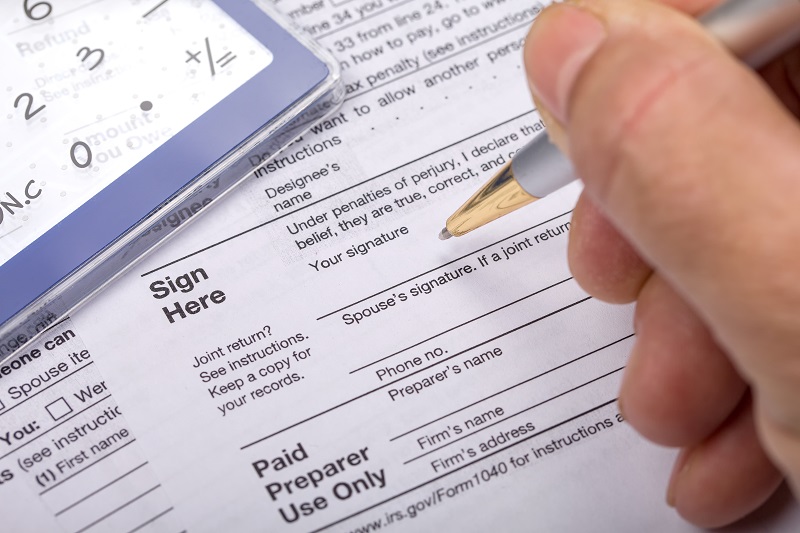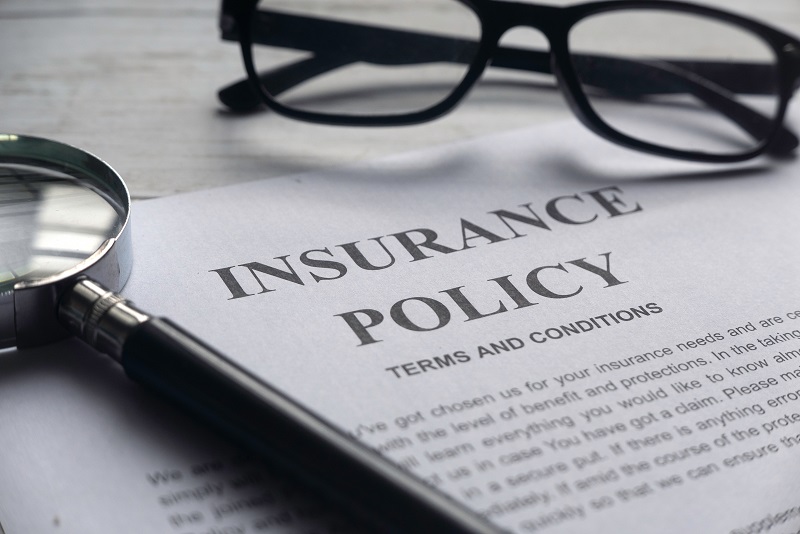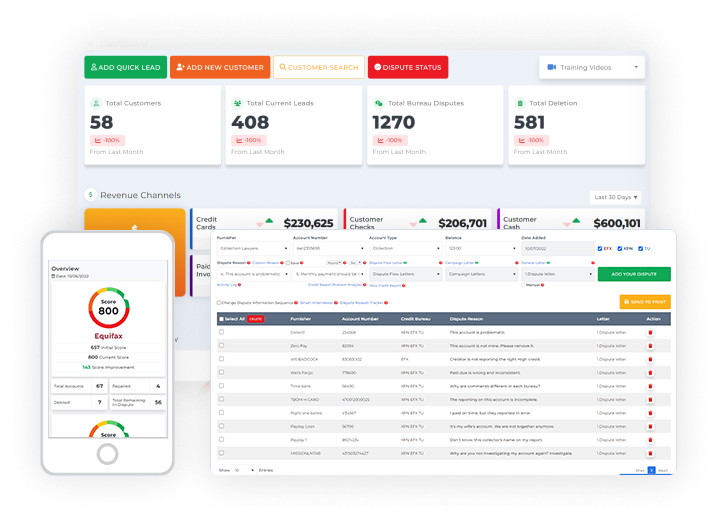If you’re considering starting a credit repair business in Illinois, it’s important to understand the laws and regulations that govern the industry. In this article, we’ll take a closer look at the specific requirements and guidelines you’ll need to follow to ensure your business is operating legally and ethically.
Business Structure

Decide on your business structure (e.g., sole proprietorship, partnership, LLC, or corporation) and register your business with the Illinois Secretary of State.
Sole Proprietorship:
This is the simplest business structure, where the owner is the business, and there is no legal distinction between the owner and the business. The owner reports business income and expenses on their personal tax return. There is no specific registration required, but a sole proprietorship offers no personal liability protection for the owner.
Partnership:
A partnership consists of two or more people who agree to share in the profits and losses of a business. Partnerships can be general partnerships, limited partnerships (LP), or limited liability partnerships (LLP). Each has varying levels of liability protection for partners and different tax implications.
Limited Liability Company (LLC):
An LLC offers the limited liability protection of a corporation and the tax advantages of a partnership or sole proprietorship. It is a separate legal entity from its owners, who are called members. An LLC can have one or multiple members, and profits and losses are typically passed through to the member’s personal tax returns.
Corporation:
A corporation is a separate legal entity owned by shareholders, who have limited liability for the company’s debts and obligations. There are two primary types of corporations: C corporations and S corporations.
C corporations are subject to double taxation (corporate profits are taxed, and shareholder dividends are taxed), while S corporations avoid double taxation by passing profits and losses through to shareholders’ personal tax returns.
Federal EIN

Obtain a Federal Employer Identification Number (EIN) from the Internal Revenue Service (IRS) for tax purposes.
Online:
- Visit the IRS EIN Assistant website.
- Click on “Apply Online Now” to start the application process.
- Read the guidelines and click “Begin Application” to proceed.
- Select the appropriate legal structure for your business and follow the prompts to provide the required information.
- Complete the application by providing information about your business and its responsible party (usually the owner or a principal officer of the company).
- Review the information, submit the application, and receive your EIN instantly. You can download, save, and print your EIN confirmation notice.
By Mail:
- Download Form SS-4, “Application for Employer Identification Number,” from the IRS website.
- Fill out the form with the required information about your business and its responsible party.
- Mail the completed form to the following address:
Internal Revenue Service Attn: EIN Operation Cincinnati, OH 45999
The processing time for a mailed application is about 4 to 5 weeks.
By Fax:
- Complete Form SS-4 as described above.
- Fax the completed form to the IRS at (855) 641-6935.
- If you provide your fax number on the application, the IRS will fax back your EIN within 4 business days.
State Tax Registration

Register your business with the Illinois Department of Revenue for sales tax and withholding tax purposes.
- Visit the Illinois Department of Revenue’s MyTax Illinois website.
- If you don’t have an account, click “Sign Up Now” to create a new MyTax Illinois account. You’ll need to provide your name, email address, and security information.
- Once you have an account, log in and click on “Register a New Business” under the “Businesses” tab.
- Follow the prompts to provide information about your business, including your EIN, legal structure, and other required information.
- During the registration process, you’ll be asked to select which taxes you need to register for. For a credit repair business, you might need to register for sales tax (if you’re selling goods in addition to your services) and withholding tax (if you have employees).
- Complete the registration process and submit the application.
- Upon approval, you’ll receive a confirmation with your Illinois Business Tax number, which you’ll use for filing and paying state taxes.
As a credit repair business, you should also be aware of the requirements set forth by the Illinois Credit Services Organizations Act, as previously mentioned. This includes registering with the Illinois Attorney General’s office, obtaining a surety bond, and adhering to specific contract requirements and prohibited practices.
Please note that the information provided is for general guidance and may not cover all specific situations or recent changes in regulations. It’s essential to consult with a legal professional or contact the appropriate state agencies for the most accurate and up-to-date information.
Local Permits and Licenses

Check with your local city or county government for any permits, licenses, or zoning requirements applicable to your business.
Business License:
Some cities and counties require businesses to obtain a general business license or permit to operate within their jurisdiction. Check with your local city or county clerk’s office to determine if this requirement applies to your credit repair business.
Zoning Permits:
Your business location must comply with local zoning regulations. You’ll need to verify that your office location is zoned for your type of business. If you’re working from home, you may need a home occupation permit. Contact your local planning or zoning department for more information.
Sign Permits:
If you plan to display signage for your business, you may need a sign permit from your local government. The requirements and fees for sign permits vary by jurisdiction.
Sales Tax Permit:
If your credit repair business sells goods in addition to services, you might need a sales tax permit. As mentioned earlier, you can register for sales tax through the Illinois Department of Revenue’s MyTax Illinois website.
Please note that these are general categories, and specific requirements may vary depending on your local jurisdiction. It’s crucial to consult with your local city or county government to ensure you meet all necessary local requirements for starting a credit repair business in Illinois.
Illinois Credit Services Organizations Act (815 ILCS 605)

Familiarize yourself with the Illinois Credit Services Organizations Act, which regulates credit repair businesses in the state.
Registration:
Credit repair businesses must register with the Illinois Attorney General’s office and pay a registration fee. The registration is valid for one year and must be renewed annually.
Surety Bond:
Credit repair businesses are required to obtain a surety bond of at least $100,000 to protect their clients in case of financial loss due to the business’s actions. The bond must be issued by a bonding company authorized to do business in Illinois.
Contract Requirements:
Credit services organizations must provide their clients with a written contract that meets specific requirements outlined in the Act. The contract must:
- Be in writing and signed by the consumer.
- Clearly state the terms and conditions of payment, including the total amount to be paid by the consumer.
- Detail the services to be performed by the credit services organization.
- Include a statement of the consumer’s right to cancel the contract within five business days after signing.
- Specify the date by which the credit services organization will complete the promised services.
Prohibited Practices:
The Act outlines several practices that are prohibited for credit services organizations, including:
- Charging or receiving payment from a consumer before completing the agreed-upon services.
- Making false or misleading statements to a consumer reporting agency or to a consumer about a consumer’s creditworthiness, credit standing, or credit capacity.
- Advising or assisting a consumer in making false or misleading statements about a consumer’s creditworthiness, credit standing, or credit capacity.
- Engaging in fraudulent, deceptive, or misleading practices.
Penalties:
Violations of the Illinois Credit Services Organizations Act can result in civil penalties, such as fines, and criminal penalties, including imprisonment. Additionally, consumers who are harmed by a credit services organization’s violation of the Act may bring legal action against the organization for damages.
Registration

Credit repair businesses must register with the Illinois Attorney General’s office and pay a registration fee.
Obtain The Registration Form:
Contact the Illinois Attorney General’s office to request the Credit Services Organization registration form. You can contact them through their official website or by calling their Consumer Fraud Hotline at (800) 386-5438 (Chicago), (800) 243-0618 (Springfield), or (800) 243-0607 (Carbondale).
Complete The Registration Form:
Fill out the registration form with the required information about your credit repair business, including your business name, address, phone number, Federal Employer Identification Number (EIN), and other relevant details.
Obtain A Surety Bond:
As required by the Illinois Credit Services Organizations Act, obtain a surety bond of at least $100,000 from a bonding company authorized to do business in Illinois. Attach a copy of the bond to your registration form.
Pay The Registration Fee:
Include the registration fee with your application. The fee amount may vary, so check with the Illinois Attorney General’s office for the current fee.
Submit The Registration Form:
Mail the completed registration form, along with the surety bond and registration fee, to the address provided by the Illinois Attorney General’s office. Make sure to keep a copy of your submission for your records.
Await Confirmation:
Once your registration form is received and processed, the Illinois Attorney General’s office will notify you of your registration status. If approved, your registration will be valid for one year and must be renewed annually.
Surety Bond

Obtain a surety bond of at least $100,000, as required by the state, to protect your clients in case of financial loss due to your business’s actions.
Choose A Surety Company:
Find a surety company or insurance agency authorized to issue surety bonds in Illinois. You can search for licensed surety companies through the National Association of Surety Bond Producers (NASBP) website or the Surety & Fidelity Association of America (SFAA) website.
Gather Necessary Information:
Before applying for a surety bond, gather the necessary information about your credit repair business, including your business name, contact details, Federal Employer Identification Number (EIN), and the bond amount required by the Illinois Credit Services Organizations Act.
Complete The Surety Bond Application:
Fill out the surety bond application provided by the surety company. The application may require information about your business, personal financial statements, and business financial statements.
Credit Check and Underwriting:
The surety company will review your application and conduct a credit check to assess your creditworthiness. The cost of the bond, known as the bond premium, will depend on the bond amount and your credit score. Generally, the bond premium is a percentage of the total bond amount.
Obtain The Surety Bond:
If your application is approved, the surety company will issue the bond. You’ll need to sign an indemnity agreement and pay the bond premium.
Submit The Surety Bond:
Attach a copy of the surety bond to your registration form when registering with the Illinois Attorney General’s office, as required by the Illinois Credit Services Organizations Act.
Keep in mind that the surety bond must remain in effect for the duration of your credit repair business’s registration with the Illinois Attorney General’s office. You may need to renew the bond periodically, depending on the bond’s terms and conditions.
Business Insurance

Consider obtaining business insurance to protect your business from potential risks and liabilities.
General Liability Insurance:
This type of insurance provides coverage for claims arising from bodily injury, property damage, and personal injury (e.g., defamation, or false advertising) that may occur during the course of your business operations.
Professional Liability Insurance (Errors and Omissions Insurance):
This insurance covers your credit repair business against claims of negligence, errors, or omissions while providing professional services. It can help cover legal fees and damages if your business is sued for mistakes or failure to perform services as promised.
Commercial Property Insurance:
If you have a physical office location, commercial property insurance can protect your business property, including furniture, computers, and other equipment, against damage or loss due to fire, theft, or natural disasters.
Workers' Compensation Insurance:
If you have employees, workers’ compensation insurance is required by law in Illinois. This coverage provides benefits to employees who suffer work-related injuries or illnesses, covering medical expenses and lost wages.
Cyber Liability Insurance:
As a credit repair business, you likely handle sensitive personal and financial information for your clients. Cyber liability insurance can protect your business from financial losses resulting from data breaches, cyberattacks, and other cyber threats.
Commercial Auto Insurance:
If your business owns vehicles or uses them for business purposes, commercial auto insurance is necessary to protect against liability and property damage in case of an accident.
To obtain business insurance for your credit repair business in Illinois, you'll need to:
Research Insurance Providers:
Look for insurance providers or agents specializing in business insurance or who have experience working with credit repair businesses.
Request Quotes:
Reach out to multiple insurance providers and request quotes for the coverage you need. Be prepared to provide information about your business, such as your location, the number of employees, and the nature of your services.
Compare Policies:
Review the quotes and coverage options from different providers to determine which policy best fits your business’s needs and budget.
Purchase Coverage:
Select a provider and purchase the necessary insurance coverage for your credit repair business. Be sure to keep your insurance policy documents in a safe place and review them regularly to ensure they continue to meet your business’s needs.
Marketing And Advertising

Create a marketing plan and adhere to the Federal Trade Commission’s (FTC) guidelines on advertising credit repair services, as well as any state-specific regulations.
Build A Professional Website:
A well-designed website can serve as the central hub for your online presence, showcasing your services, sharing success stories, and providing contact information for potential clients.
Utilize Social Media:
Create and maintain profiles on popular social media platforms like Facebook, Twitter, LinkedIn, and Instagram to engage with potential clients, share helpful tips, and promote your services.
Content Marketing:
Develop and share informative blog posts, articles, or videos related to credit repair and personal finance. This can help establish your credibility and expertise in the industry.
Local Marketing:
Network with local businesses, real estate agents, mortgage brokers, and financial advisors who might refer clients to your credit repair services. Attend local events and join business organizations to build connections within your community.
Online Advertising:
Use platforms like Google Ads or Facebook Ads to target potential clients searching for credit repair services. Be sure to research and follow the advertising guidelines for each platform.
Reviews And Testimonials:
Encourage satisfied clients to leave reviews and testimonials on your website or other online platforms. Positive feedback from real clients can help build trust with potential clients.
Legal considerations for credit repair businesses:
Federal Trade Commission (FTC) Regulations:
The FTC enforces the Credit Repair Organizations Act (CROA), which prohibits credit repair companies from making false or misleading claims about their services. Ensure your advertising complies with the CROA and other relevant FTC guidelines.
Illinois Credit Services Organizations Act:
As a credit repair business in Illinois, you must follow the provisions of the Illinois Credit Services Organizations Act (815 ILCS 605), which prohibits certain advertising practices, such as making false or misleading statements about a consumer’s creditworthiness, credit standing, or credit capacity.
Truth In Advertising:
Be transparent and accurate in your marketing materials, avoiding deceptive or misleading claims about your services, results, or the benefits clients can expect.
Disclosures:
Clearly disclose any fees, terms, and conditions associated with your services, and inform clients of their rights under federal and state law.
Maintain Compliance

Stay up to date with state and federal regulations governing credit repair businesses, and ensure ongoing compliance with these requirements.
Regularly Review State And Federal Laws:
Familiarize yourself with the Illinois Credit Services Organizations Act (815 ILCS 605) and the federal Credit Repair Organizations Act (CROA), and review them periodically for any changes or amendments.
Monitor Regulatory Agencies:
Follow updates from relevant regulatory agencies, such as the Illinois Attorney General’s Office, the Federal Trade Commission (FTC), and the Consumer Financial Protection Bureau (CFPB). Subscribe to their newsletters, press releases, or RSS feeds to receive the latest information.
Join Industry Associations:
Participate in credit repair industry associations, such as the National Association of Credit Services Organizations (NACSO) or the Credit Consultants Association (CCA). These organizations provide resources, networking opportunities, and updates on industry news and regulations.
Attend Conferences And Workshops:
Attend industry conferences, workshops, and seminars to stay informed about the latest trends, best practices, and changes in regulations. These events often feature expert speakers who can provide valuable insights and updates on compliance matters.
Network With Other Credit Repair Businesses:
Connect with other credit repair business owners, either locally or online, to share experiences and discuss regulatory updates. This can help you stay informed about changes in the industry and learn from the experiences of others.
Consult Legal Professionals:
Engage the services of a legal professional experienced in credit repair or consumer protection law to review your business practices and ensure compliance with all applicable state and federal regulations. They can also advise you on any recent changes in the law that may impact your business.
Establish Internal Processes:
Develop and maintain internal processes for your credit repair business to ensure ongoing compliance, such as regularly reviewing contracts, marketing materials, and business practices. Train your employees on these processes and update them as needed to reflect changes in regulations.
Schedule Periodic Compliance Reviews:
Conduct regular internal audits and reviews of your business practices to identify any potential compliance issues and address them promptly.
Ready to start your credit repair business in Illinois?
Make sure you are informed and compliant with the latest state laws.
Click now to learn more.
We hope this article has provided you with a clear understanding of the legal requirements for starting a credit repair business in Illinois. By following these guidelines and seeking professional advice as needed, you can ensure that your business is operating within the bounds of the law.
Bonus: Now that you have read this article, why not take your new skill and start your own credit business helping others? We have free training that can help you do just that.



